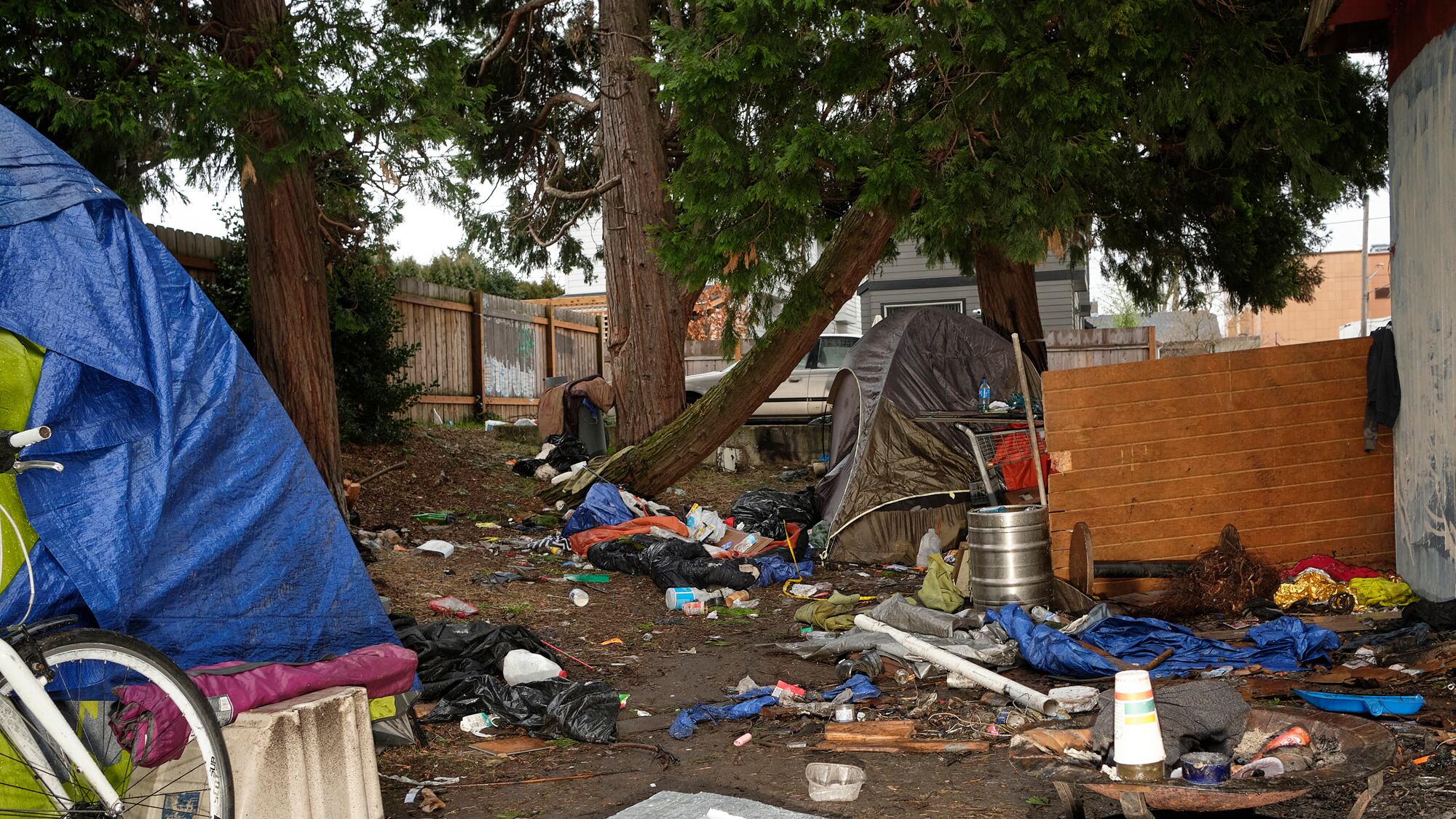The first of the city’s six mass encampments for unhoused Portlanders is slated to open this summer, Mayor Ted Wheeler said during a press conference this morning. Run by California nonprofit Urban Alchemy, which manages similar sites in California, the camp will be located in a parking lot on the inner eastside along Southeast Gideon Street. It’s expected to have capacity for 100 tents.
Late last year, the Portland City Council voted 4-1 to approve the controversial camps and shortly thereafter approved $27 million to open and operate three of the six sites.
“This is the humane approach,” Wheeler said at City Hall on Thursday. “This effort will better connect homeless Portlanders who have been camping along sidewalks along roadways and public spaces to much-needed services in a safe and sanitary environment.”
Rules will be strict: no weapons, no drug or alcohol use in public spaces, no cooking or fires, and no camping within a 1,000 feet of the site.
The city aims to open six sites with capacity for 150 campers each. The camp on Gideon is the only site the city has publicly announced, though WW reported last month that a parking lot underneath the Morrison Bridge downtown was being discussed, and The Oregonian reported last month that officials were also eyeing the site of a former church near Interstate 205, though that location has now been nixed.
Critics of the encampments, including many housing advocates, are opposed to the idea that Wheeler would couple the sanctioned camps with a citywide camping ban—the two concepts were paired by former mayoral aide Sam Adams in early memos on encampments, then envisioned as having room for 1,000 people a night. Wheeler himself debuted the plan for large encampments alongside a pledge to phase out sidewalk camping over 18 months.
At this morning’s press conference, Wheeler and his staff appeared to back away from linking the two.
“We’re trying to create a non-law enforcement approach to incentivizing people into services they need,” Wheeler said. “The goal here would be an effort to eliminate past sanctions, old warrants, old fines, that kind of thing, in exchange for people being willing to participate in…treatment.”
A senior policy adviser to Wheeler, Skye Brocker-Knapp, said the city would not “[force] people into these sites.”
The sites will provide basic amenities like washing machines, regular trash pickup and bathrooms. Meals will be provided, as will behavioral and mental health resources. In February, Multnomah County Chair Jessica Vega Pederson said she would provide wraparound services to the encampments once she sees one up and running.
